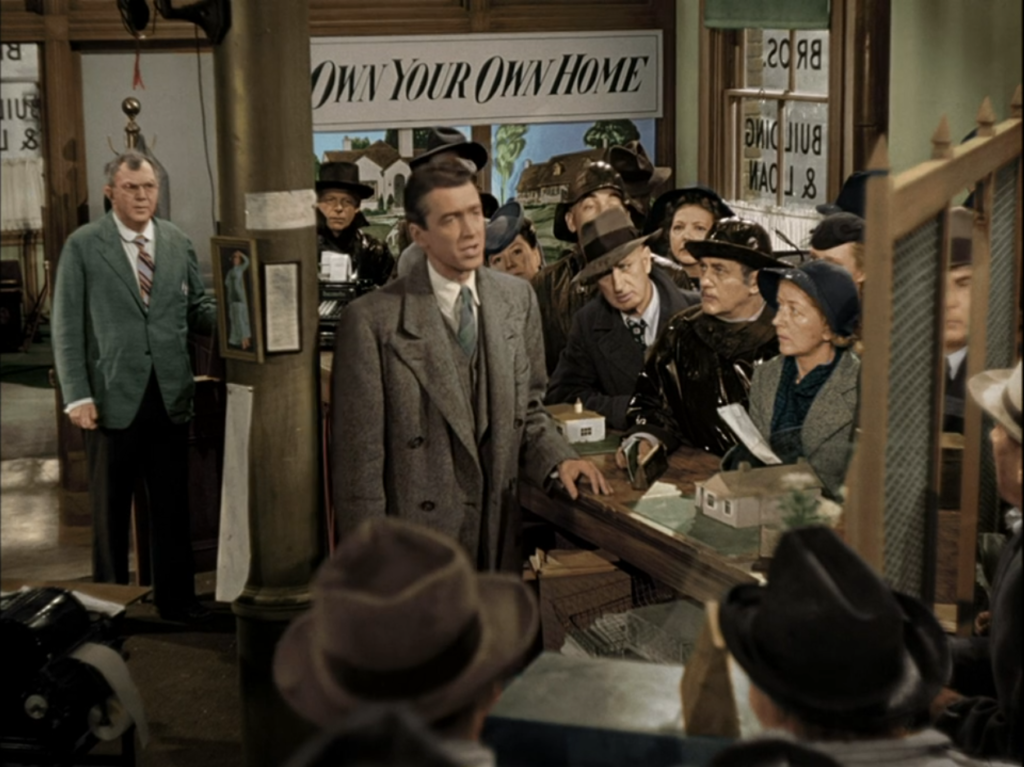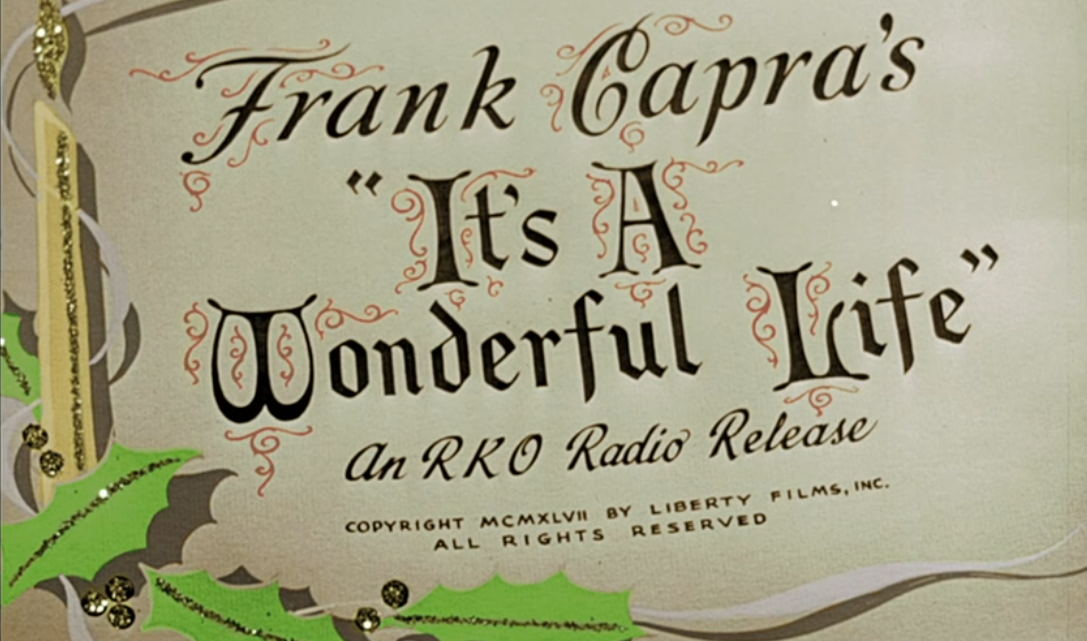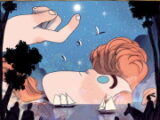It’s a Wonderful Life
February 6, 2021Seen on Prime Video (in colorized version – yuck).
Director: Frank Capra
Writers: Frances Goodrich, Albert Hackett, Frank Capra, Jo Swerling & Philip Van Doren Stern
Main actors: James Stewart, Donna Reed, Lionel Barrymore
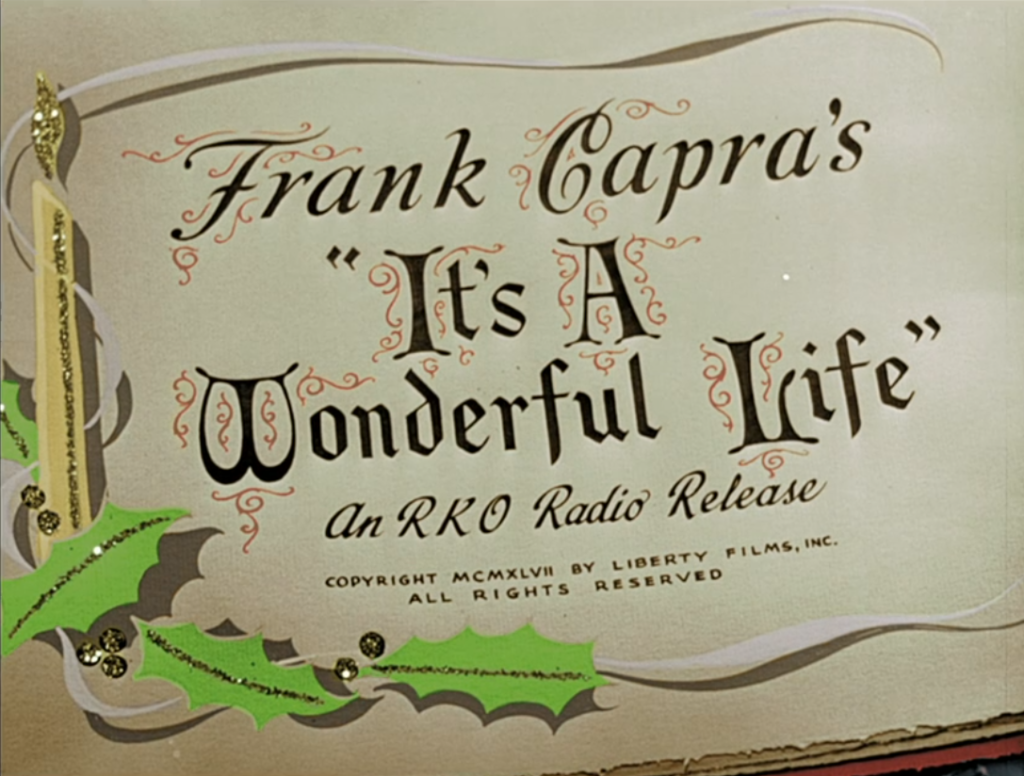
There’s trouble in the sky! Actually, angels are talking about a certain George Bailey who is about to commit suicide. So, they send one of their own, Clarence, to try to convince George to change his mind. But Clarence is a second-class angel, an angel who has yet to earn his wings. So inevitably, he will have some peculiar methods. Maybe this is what George needs?
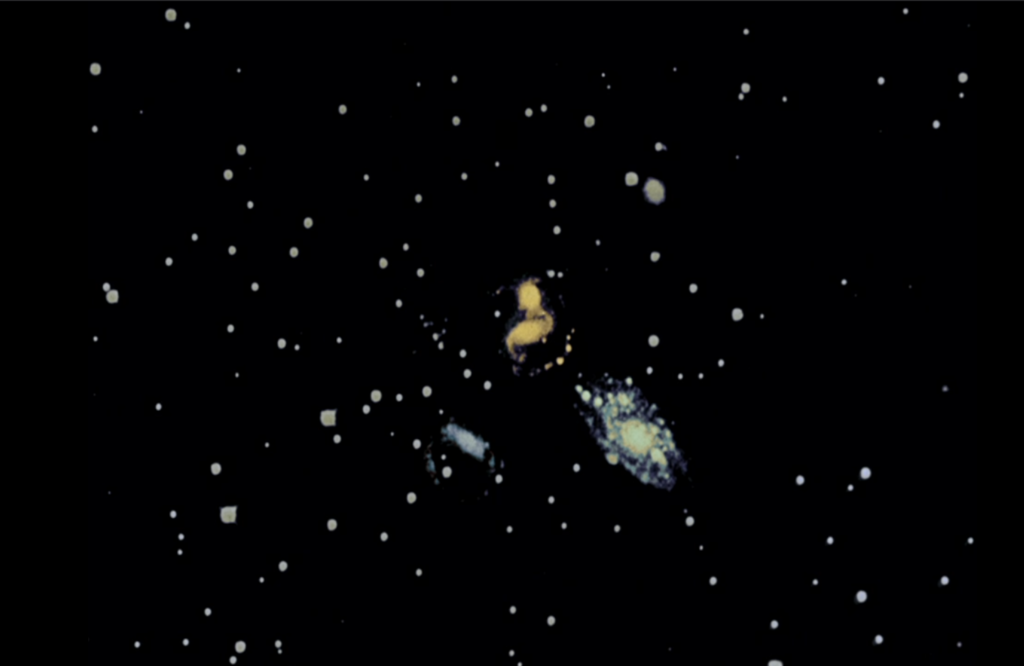
As part of the # WatchingClassicsChallenge2021 found on Twitter, I watched It’s a Wonderful Life, a Frank Capra classic, as it stars Donna Reed. The duration exceeding 2 hours for a movie from this period surprised me at first, since the film has a “feel good”, family-friendly and even Christmassy reputation.
It all starts with a scene in heaven where the Angels announce to their subordinate that he needs a good hour ahead of him to get to know George better. Long before 24 and its real-time success, Capra was giving a wink at the viewer: “Hey, boy, let’s introduce you to the main character. During one hour! Ha ha ha!”.
In any other kind of movie, it would have been a disaster, but here, no, not at all. Because George Bailey must be understood in its entirety if we ever want to understand the rest of the movie. And as a matter of fact, it’s not only George and his intimate convictions that are introduced but a whole microcosm, Bedford Falls, and of course all the links that George creates there, even if he does everything he can to leave this place.
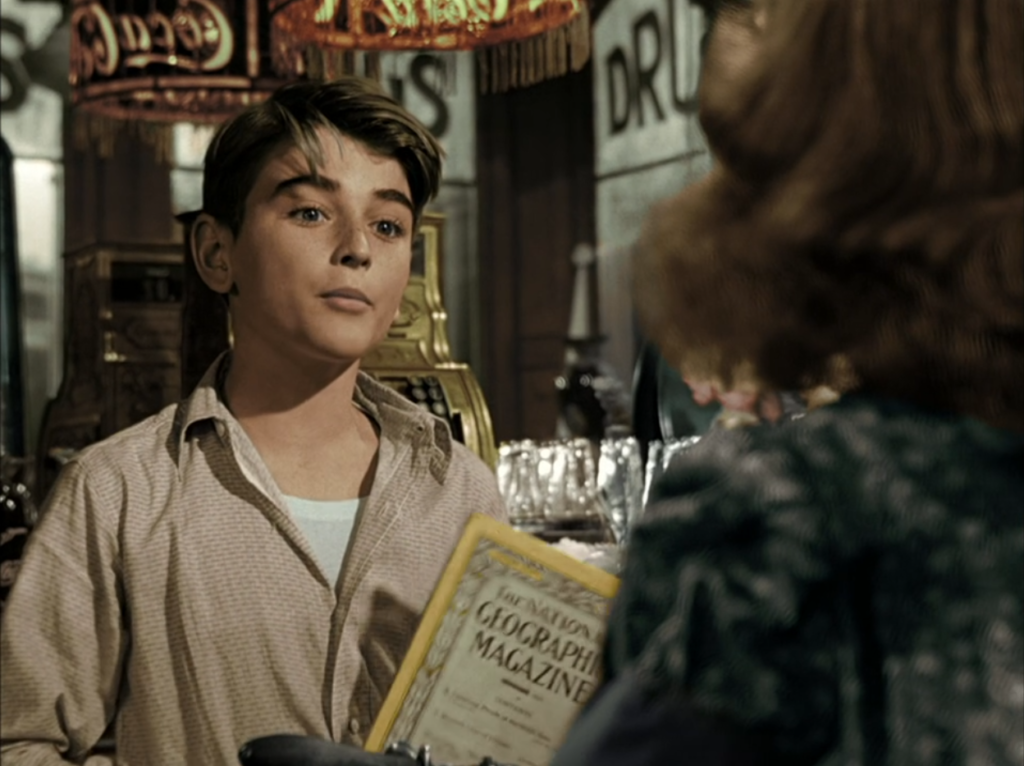
Ever since he was a boy, he dreamt of traveling, of adventures included in the National Geographic. He sees big and thinks that one day, yes, one day, he will do great things like mile-long bridges or 100 story skyscrapers. Anyway, he knows what he wants and he’ll do anything to make it happen. Even if it means saving money since his young days when he worked as an apprentice grocer. But fate won’t see it that way, and almost every time he has the opportunity to leave his hometown, an unforeseen event will force him to stay. Because yes, George feels that without him, things could turn out badly.
As much as I think about the movie, there are a lot of arguments to classify it as “Religion and Spirituality” as Prime Video does:
- George has all the signs of a Christlike character: saves his brother from waters, will sacrifice himself more than once for his little brother or for his city; naive utopian who firmly believes that anything is possible. Many times is he tempted mainly by greed, money or (very vaguely) sex.
- Water and character rebirth are present at the beginning and end of the film.
- If George isn’t there, the city turns into a place of debauchery where every business is replaced by a bar or a strip club.
- And of course, he overcomes every obstacle he encounters with a smile, in a “turn the other cheek” mode, living on little but the love of thy neighbor.
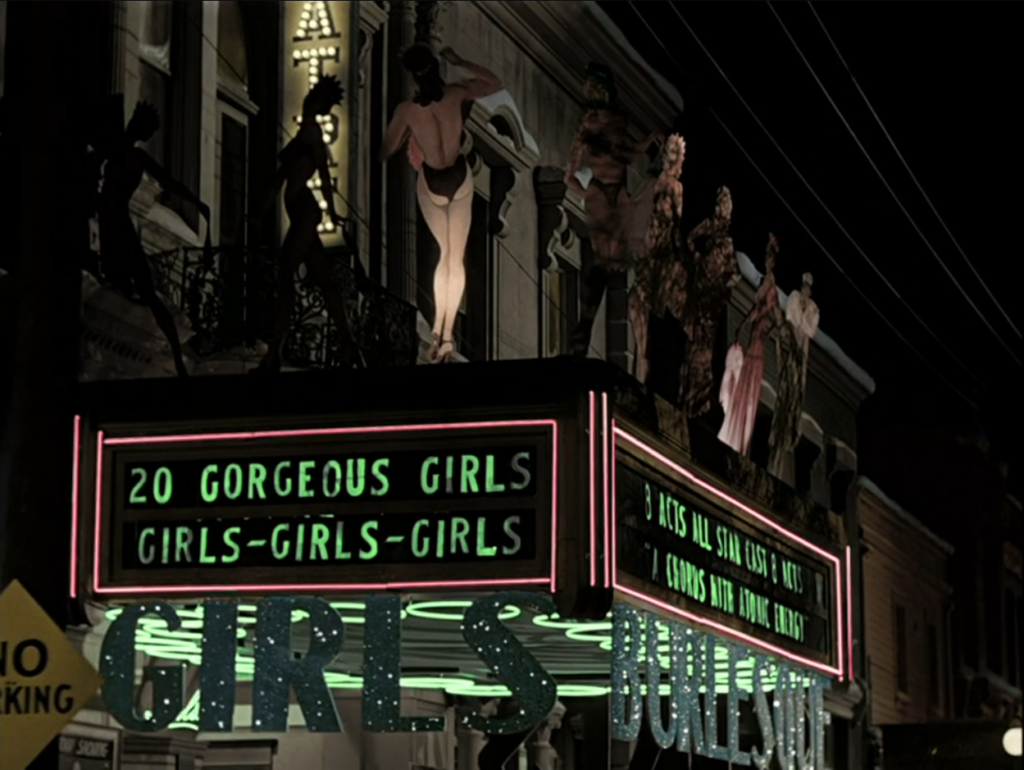
For me, I found there a kind of humor, some fate irony which never allows him to reach his goal, a bit like “Groudhog Day” which owes a lot to “It’s a Wonderful Life”. Each event is well enough put together to be believable (except probably the very last triggering event, which is a bit of a shame) and ultimately fun. We like winners, and the fact that George gets away, thanks to his beliefs (and a script that makes his job easier, economically speaking) makes the viewer happy.
And we let ourselves understand that a happy life without much excitement is as good as a life of adventures filled with grandiose moments. An ode to an everyday life that remains a wonderful life when you realize everything you do and what you bring around you.
To the religious component, I prefer the humanist fable, which shows that doing your best to help others without waiting anything will often be reciprocated at the most crucial moment.
There are also great actors: if James Stewart is overacting a bit (there are close-ups that I could have been taken from a Hitchcock movie even if tones are really different), the rest of the cast is awesome. From Lionel Barrymore as a hideous Mr Potter, alter-ego of Dickens’ Scrooge, to Donna Reed, a loving woman, pretty without being a sex bomb (which often went hand in hand at the time the movie was shot), passing by Henry Travers as a debonair angel which I wished had a longer time on screen or Thomas Mitchell, a goofy uncle always accompanied by improbable animals, it’s a real pleasure to follow these actors trained at silent movies’ school but who manage to stay on the edge of overplay. The movie pace is good with a relatively nervous editing for the time and scenes that always provide the little spark to launch the next scene.
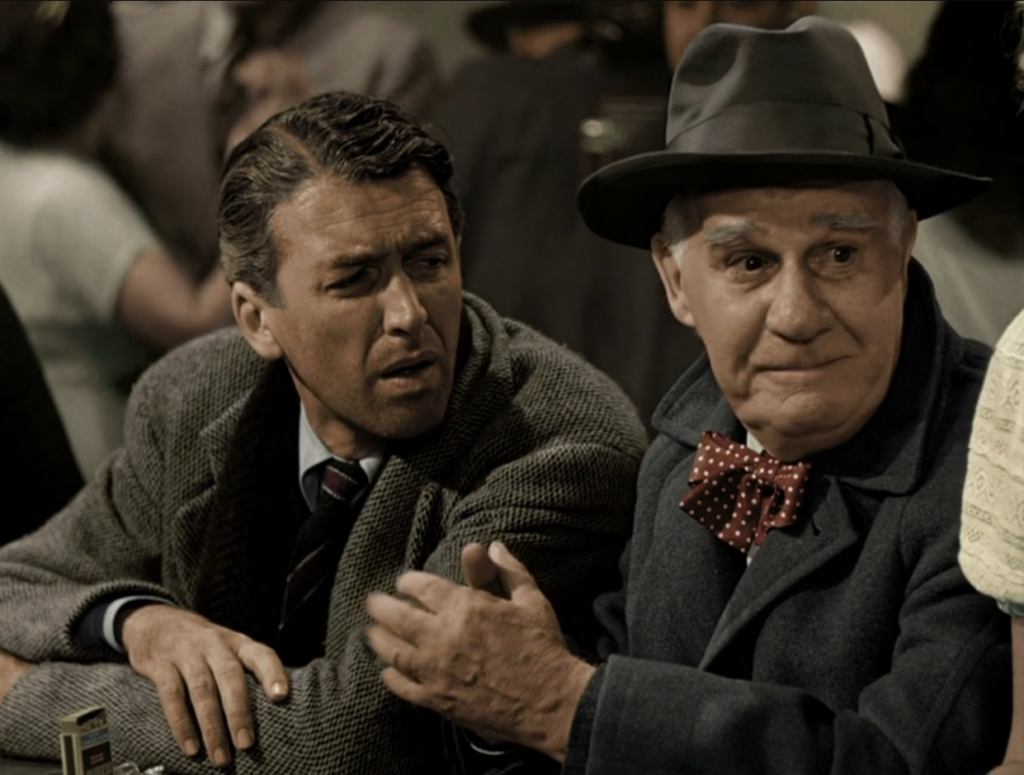
I think that It’s a wonderful Life is a nice classic that can lift your spirits when you have the blues. Depending on your education and your values, you will find fundamentally opposed things there and you will appreciate the film differently, but doesn’t that make all the quality of the movie? I also have the feeling that this film has inspired a number of other good works: probably “Quantum Leap” or “Groundhog Day” would have been quite different without it.
